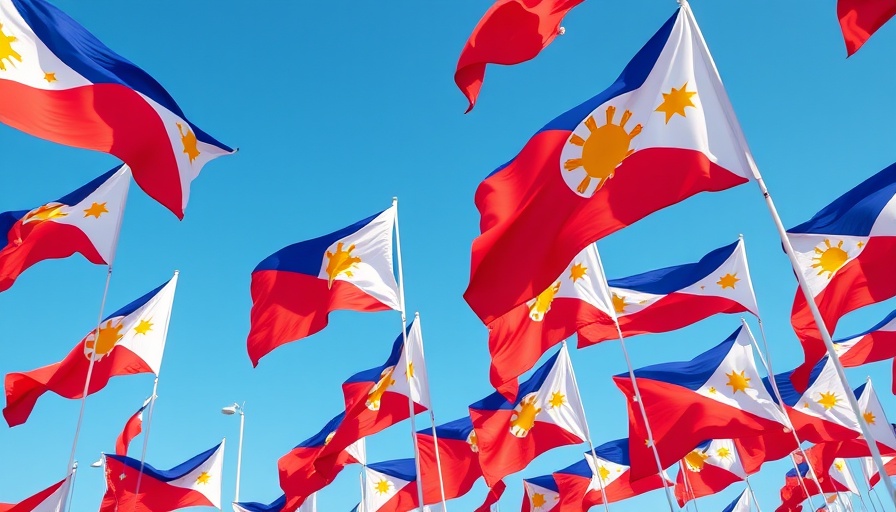
Philippines Independence Day: A Celebration of Freedom
Each year on June 12, Filipinos around the world commemorate their struggle for independence, marking the day in 1898 when the Philippines declared independence from Spanish colonial rule. This significant historical event is not just a celebration of freedom; it is a reminder of the resilience of a nation that has faced various challenges over the years.
A Brief History of Philippine Independence
The journey to independence was fraught with battles, not only against Spain but also against American colonization as the Philippines found itself in the center of geopolitical interests. The declaration made by revolutionary leader Emilio Aguinaldo took place in Kawit, Cavite, and is enshrined in Philippine history as a symbol of national pride and identity.
The Significance of the Rizal Monument
Central to this celebrations is the Rizal Monument in Manila, dedicated to José Rizal, the national hero who inspired the movement toward independence. The monument is a focal point during Independence Day celebrations, serving as a reminder of the sacrifices made by those who fought for freedom. Over the years, it has become a site for gatherings and ceremonies, underscoring the importance of education and civic responsibility in the fight for liberty.
Modern-Day Celebrations
Today, Independence Day is observed with parades, cultural performances, and the singing of the Philippine national anthem, "Lupang Hinirang." Across the globe, celebrations take on various forms—Filipino communities in different countries organize events that showcase their culture through music, dance, and culinary delights, promoting the rich heritage of the Philippines while fostering a sense of community among expatriates.
Global Recognition and Solidarity
The significance of Philippine Independence Day extends beyond national borders. It fosters solidarity among nations that value freedom. As we witness various struggles for independence and civil rights across the globe, the Philippines' celebrations remind us of the importance of standing united against oppression, advocating for justice, and promoting democracy.
Reflections on Identity and Freedom
Amid the festivities, many Filipinos engage in a period of reflection. Independence Day serves as a moment to consider how far the country has come and the challenges that still exist, such as issues related to inequality, economic growth, and national security. As debates continue about how best to navigate these challenges, the spirit of independence remains central to conversations among Filipinos.
Connecting the Past with the Present
Understanding the historical context of Philippine Independence provides crucial insights into contemporary issues facing the nation today, including political news updates, the national economy's status, and ongoing discussions about rights and freedoms within the framework of the United States and its relationship with the Philippines.
Conclusion: Embracing Change While Honoring the Past
As we honor Philippine Independence Day, it is important to recognize how the principles of freedom and sovereignty impact today’s global landscape, particularly for nations facing their own struggles. The Philippines stands as a testament to the enduring human spirit and the relentless pursuit of self-determination. As members of the global community, we are encouraged to support each other in our quests for justice, equity, and peace.
 Add Element
Add Element  Add Row
Add Row 



 Add Row
Add Row  Add
Add 


Write A Comment